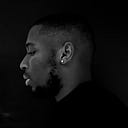When the Morning Comes
A tribute to my parents, who I honour and thank, for everything.
We were not on good terms, not by any chance. But still, whatever event I did in lagos, whatever exhibition, there were my parents, both there, doing the best they could to support me. In their own way.
I didn’t always appreciate it, though. I mean, I was angry, and I was the prodigal son, I wanted to keep being angry. To keep all those emotions that tore me up inside.
***
My mother pushed for me to invite him for my exhibition and I refused. I felt stupid asking him to come. What if he didn’t want to? What if he insulted me or ruined my day? But really, I was scared, that he’d come and be disappointed in me, somehow.
I was scared of not being accepted for the man I was becoming.
But still, I invited him.
***
On the first day of the exhibition we — the team — had ordered food from some place and my mother had damn near made me swear that we wouldn’t the next day.
I didn’t get it.
That was, until I saw the coolers of food she cooked and brought for everyone the next day.
I looked at her and she looked at me and I understood that we were in a hard, hard situation. And all she was doing, all she could do, was do the best she knew how.
It was much the same way my father allowed us use his office when New York filmmakers had sent a team to lagos to include me in a documentary.
They were far from perfect, but so was I.
I hadn’t asked to be born, to be under all this, but the more I thought about it, neither did they.
And at the end of the day, all we can do, all we know how to do, is the best we know how.
***
Things for me happened very quickly. One day I was in my home painting, the next I was selling prints on every continent, the next I was dropping out of school to pursue my work. There was no in between. Everything was at this rapid pace that I couldn’t make sense of.
One thing was for sure, I had to grow up very quickly.
And that was hard for me.
But, a few months ago, a thought hit me, a quiet one.
If this was hard for me, I couldn’t imagine how my parents would have felt, from the outside looking in.
At their son, their child, becoming a man, in the time it took the Sun to rise.
I was in a field they couldn’t help me in, one that was unstable and volatile.I understood why it was hard to support.
But still, there they both were, in every exhibition, standing, watching what the works of their hands had accomplished.
.
On the day of the exhibition, I saw him. And I went to talk to him. I showed him all the artwork, the cool stuff we were doing.
I showed him what the works of my hands had accomplished.
But I was angry, I was pained. I wanted to prove to myself that I was over it. I wanted to show that it didn’t hurt me anymore.
So, I was professional. I didn’t say too much.
I didn’t even take any pictures.
.
That night came and I remember how the thought invaded my mind like an army.
I texted everyone I could, the photographer, my friends, my mum, strangers.
Anyone I could reach, I messaaged them, only one question:
“Please,” I said, “did you get a photo with me and my father?”
I was ashamed. I had been so angry, so pompous, that I’d intentionally missed a moment I would want to remember forever.
I could point fingers all I wanted. But there was so much of him that I saw in me. That determination to succeed, despite the odds, that drive. That sense of duty.
But also that anger, that coldness that could creep up into your heart, all in the time it took the sun to rise.
***
When the morning came, I got almost a dozen texts from my mother — pictures, she said, that my little brother had taken on her phone.
You see both me and my father in them, same pose, hands in our pockets, face stony, eyes sharp.
I sat on my bed and I looked at them, and remembered older times when he’d sing me to sleep as a child when I was too restless, a song about Jesus in gallillee. A song that my mind has forgotten but my heart remembers. I remembered how many times I had painted him to get his approval, or how many times he would take us out, to show us something new — anywhere in the world, maybe to get ours.
I looked at the pictures and I cried that morning.
And when I did, I knew.
I knew.
